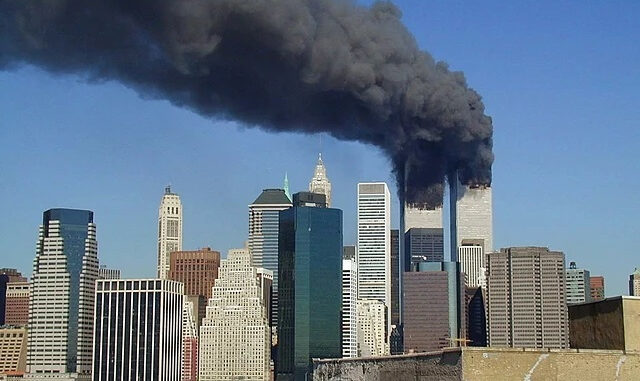
Zach Petroff | Opinions Editor
I am often reminded, usually in jest, that most of my fellow classmates here at Duquesne were not alive on Sept. 11, 2001.
And while a vast majority of Generation Z were born before the events that took place 22 years ago, the aftermath from 9/11 will be their burden.
As if climate change is not enough.
There is little doubt that when a foreign organization committed an act of terrorism on American soil, killing 2,977 people according to the 9/11 Memorial and Museum, it changed this country.
Much has been written since 9/11 about the residual effects it has had on society. These views range from romanticized narratives of selfless heroes and patriotism to the belief that 9/11 was the catalyst of the decline of America.
While these arguments invoke an emotional response, perhaps it’s time we focus the conversation around the potential consequences Gen Z may have to face.
Instead of speculation, the newest generation of adults need to have a clear picture of the society they are going to inherit and the repercussions that came with how we chose to handle the attacks on Sept. 11.
The choice to invade Iraq has been referred to as one of the worst foreign policies in U.S. history by several public officials, including former United States Foreign Service employee, Peter Van Buren, Vermont Sen. Bernie Sanders and former Senate Majority Leader Harry Reid. The invasion of Iraq along with the global war on terrorism is a direct result of 9/11.
The Watson Institute for International and Public Affairs at Brown University created the Cost of War Project to conduct and publish research about the ongoing consequences of the U.S. post 9/11. The Cost of War Project estimated, in a report released in 2020, that the total cost of the war on terror was $8 trillion.
The project also calculated that the interest payments to the national debt to fund the war could total over $6.5 trillion by the 2050s.
We put a war on a credit card and now are asking our children and grandchildren to pay for it.
Our foreign policy in the Middle East also led to destabilization in that region. The Cost of War Project estimated in 2021 that there were 3.6 to 3.8 million indirect deaths in post-9/11 war zones including Afghanistan, Pakistan, Iraq, Syria and Yemen.
It seems plausible that those countries will one day seek retribution for the actions of the U.S.
We also need to remind Gen Z that Guantanamo Bay is still operational.
The U.S. detention facility on the Guantánamo Bay Naval Base in southeastern Cuba was created in 2002 to house Muslim militants and suspected terrorists captured by U.S. forces.
Since the base was built outside the U.S. it was not required to observe the Geneva Conventions regarding the treatment of prisoners of war and civilians during wartime, as the conventions did not apply to “unlawful enemy combatants.”
According to a United Nations investigation conducted in June there were 30 men who remain detained at Guantanamo, 19 of whom have never been charged with a crime.
The lead investigator for the United Nations, Fionnuala Ní Aoláin, reported that “prisoners face ongoing cruel, inhuman and degrading treatment.”
She also recommended that the facility should be shuttered, a task that former President Obama campaigned on, but was ultimately unable to achieve.
Hopefully Gen Z can bring some sanity to the situation.
There should also be a discussion about the PATRIOT Act, another lingering and perhaps the most damaging byproduct of 9/11.
This law, upheld by the Supreme Court, expanded surveillance abilities of law enforcement, including domestic and international phone tappings. It also increased the penalties for terrorism crimes and expanded the list of activities which would qualify for terrorism charges.
The American Civil Liberties Union found that between 2003 and 2006 the FBI issued 192,499 national security letters that allowed them to obtain personal information without the approval of a judge. Of those letters issued, only one led to a terror-related conviction. They also concluded the conviction would have occurred without the use of the Patriot Act.
The ramifications of the PATRIOT Act fundamentally changed the scope of the Fourth Amendment. As technology becomes more commonplace, the ability for unlawful searches conducted by the federal government to greatly expand.
While 9/11 may seem like a distant memory, the rippling effect has spanned multiple generations.
It seems like a natural courtesy to give the upcoming adults an honest assessment of the world we created for them.

